High-Level Forum on Standardisation
ANEC President, Dermott Jewell, participated in the first meeting of the High-Level Forum on Standardisation (HLFS) on 20 January 2023. The meeting was chaired by Commissioner Thierry Breton, and aided by Chief Standardisation Officer, Maive Rute.
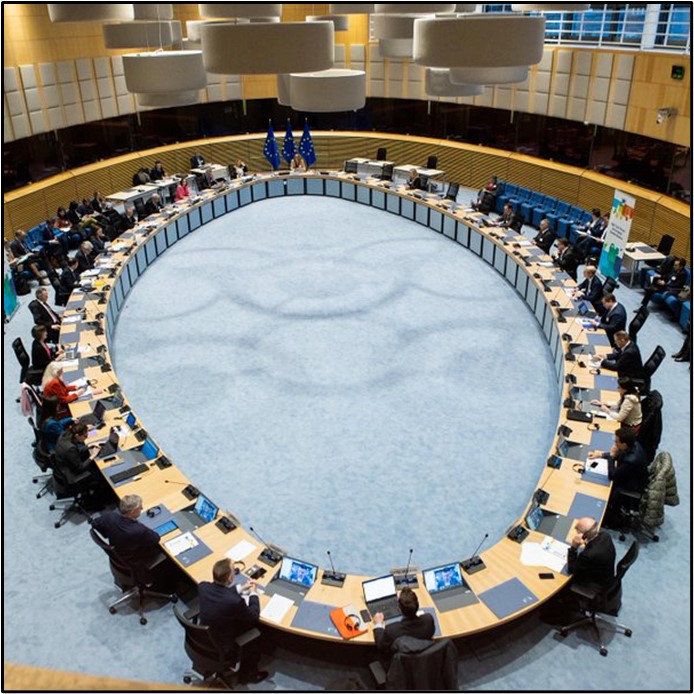 Photo © European Commission
Photo © European Commission
Dermott welcomed creation of the HLFS, noting that ANEC had proposed such a roundtable in its comments of 2021 on the roadmap for the Standardisation Strategy. He recalled that “inclusiveness” – or facilitating the participation of all stakeholders – is unique to the European Standardisation System, and that ANEC appreciates that inclusiveness is central to Regulation (EU) 1025/2012 and the Standardisation Strategy. ANEC sees inclusiveness as offering a win-win for economic and societal stakeholders. He added that, a European standard that meets the needs of both business and society can give European products and services head start on the global stage. In ANEC’s view, it followed there is advantage in European stakeholders sitting together and considering the direction of standardisation policy. He concluded by underlining ANEC’s commitment to the work ahead.
For Dermott’s speaking points, see https://bit.ly/3XgaGeo
All three of ANEC’s Sherpas joined the first meeting of the Sherpa sub-group of the HLFS on 10 January. Noting the Commission comment that a strategic approach needs to be brought to priority-setting, we said that the HLFS could be the forum that sets high-level principles and criteria as to whether work in the European strategic interest should be developed in CEN-CENELEC or offered to ISO/IEC. We voiced the concern of broader European civil society by stressing our expectation for European standards to respect European values, especially in the digital area.
IMCO hearing on standardisation
ANEC Director-General, Stephen Russell, was a speaker at the European Parliament’s Internal Market and Consumer Protection Committee (IMCO) hearing on Standardisation in the Single Market on 23 January.
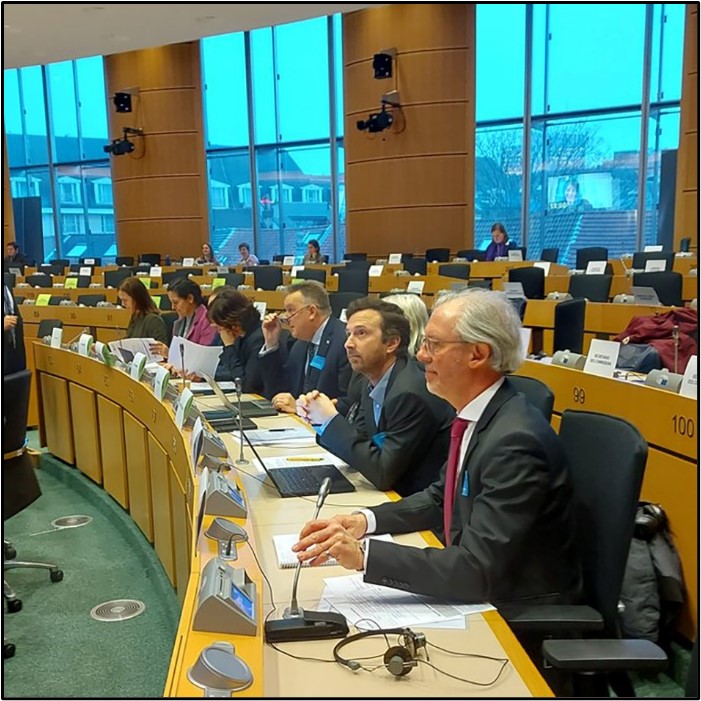
Photo © CEN-CENELEC
He shared our views on the current challenges, strategic priorities and future developments in European standardisation, ahead of the IMCO own-initiative report, "A standardisation Strategy for the Single Market".
Although applauding the role of the New Legislative Framework (NLF) – and its reference to standards - in continuing to consolidate the Single Market, Stephen expressed concern at the application of the NLF to topics such a mental health and the Charter of Fundamental Rights in legislation such as the AI Act. He said such topics should be addressed by regulation only.
For a recording of the hearing, see https://bit.ly/3kFr9eI.
Horizontal
CEN-CENELEC governance review
As a contribution to the European Commission’s invitation to the European Standardisation Organisations to review their governance in the context of the EU Standardisation Strategy, ANEC and its peer “Annex III organisations” (ECOS, ETUC, SBS) have made a joint proposal that we believe would improve inclusiveness. See https://bit.ly/3XS2OAu.

In summary,
- In order for the national delegation principle to function at the service of ESOs and the ESS, we believe obstacles to the participation of stakeholders at national level (such as fees) need to be dismantled as far as possible and harmonised across the CEN-CENELEC members. We think the ease of access could form part of the regular audits that NSBs and NCs are required to undertake as a condition of membership. Moreover, we believe NSBs and NCs should be as proactive as possible in seeking the participation of all stakeholders in their work. The lack of systematic and active facilitation of the participation of the constituencies of the Annex III organisations has a knock-on effect on our representation, particularly in national, European, and international standardisation.
- We think the interplay between European and international standardisation needs to be revisited. This is urgent in cases where international standards are adopted as European standards, and the requirements for compliance with Regulation 1025.
- The rights of the Annex III organisations within CEN and CENELEC must be further strengthened to ensure they not only ‘have access’, but can ‘effectively participate’. This could be made visible through creation of an ‘Associate Membership’ for each Annex III organisation, underlining its distinction from other CEN-CENELEC Partner Organisations, and similar to what ANEC and ECOS used to hold in CEN.
Draft AUWP 2023

ANEC has published a position paper, expressing our first views on the draft Annual Union Work Programme (AUWP) for European Standardisation for 2023. (https://bit.ly/3D6npck)
Child Safety
Revisiting the Giant’s House
As we reported last year (https://bit.ly/408C9kT), the Giant’s House is a Belgian exhibition which aims to raise awareness of the importance of child safety in the household. In the Giant’s House, each object is tripled in size, allowing one to see it through the eyes of a small child. As adults walk through the rooms, they discover the risks and the best ways to prevent accidents involving children.
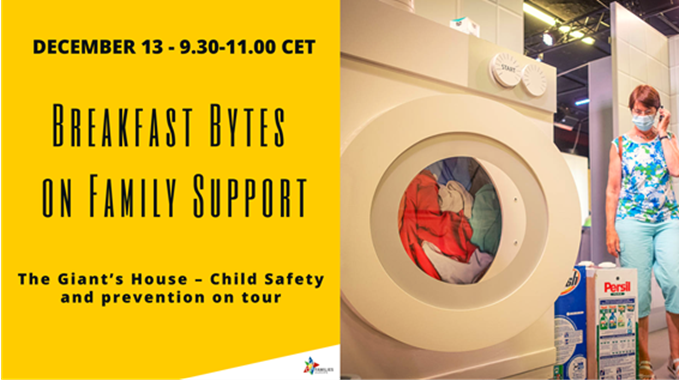
ANEC supports the initiative and hopes it can be introduced in other countries.
We therefore welcomed our colleagues in COFACE Families Europe hosting a free webinar in English about the Giant’s House in order to promote the introduction of the exhibition in other European countries. It took place on 13 December 2022 and was attended by ANEC. COFACE highlighted ANEC as an important player in the promotion of the exhibition.
For more information, see the English presentation at https://bit.ly/3R8iv4w and video at https://bit.ly/3j7K69l. More information can also be found at www.reuzenhuis.org (Dutch) and www.maisondesgeants.org (French).
Learning towers – CAN YOU HELP?
ANEC joined the November 2022 meeting of CEN/TC 364 ‘High chairs and learning towers’. The main item was the development of a new European standard on learning towers, with a view to improving their safety. This answers a proposal made by ANEC in 2021.
Learning towers (or kitchen helpers) are designed to allow a child to stand on a platform to reach a countertop or work surface (e.g. in the kitchen or the bathroom).
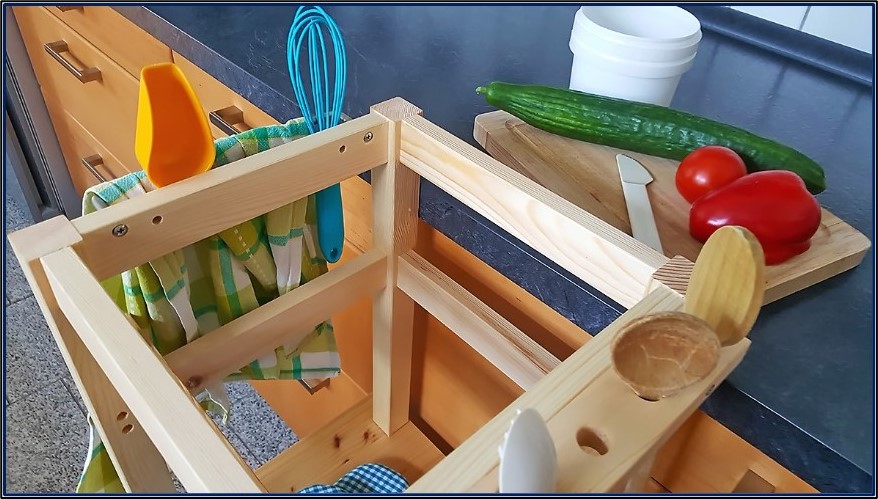
The key safety issues with learning towers are footholds; gaps at the sides; barriers around the top; wheels & castors; stability (climbing from the outside); and potential incorrect use.
And you can help us in the development of this standard. We would be grateful if you could share with us:
- Your (good and bad) experiences of using these products (e.g. is the product stable enough when the child is using it?)
- Suggestions to improve their safety.
Please write to ksk(@)anec.eu.
Inflatable bungee runs
In January, ANEC sent comments and a Not-Favourable Opinion in response to the Enquiry on prEN 14960-4 ‘Inflatable play equipment - Part 4: Additional safety requirements and test methods for bungee runs’.
In a typical game featuring a bungee run, the contestants wear a padded body-belt, and run against the resistance of a fixed bungee cord, with the aim of fixing a Velcro baton furthest along a middle marker.

In June 2022, ANEC already expressed concern as regards the working draft of prEN 14960-4, indicating that the draft was lacking important safety requirements, and test methods for the strength of the bungee belts and bungee shock cords.
As our concerns remain valid, we urge CEN/TC 136/SC 1/WG9 to address the requirements and test methods for the force which the harness and attachment must withstand. These are vital to avoid the failure of these parts, and to ensure the safety of the users.
Accessibility
Accessible Europe: ICT 4 All
ANEC was delighted to participate in the event ‘Accessible Europe: ICT 4 All – a celebration of the International Day of Persons with Disabilities’ hosted by the ITU on 6 December 2022. Chiara Giovannini, ANEC Deputy Director-General, spoke during ‘Session II: Standardization of digital tools and services’.
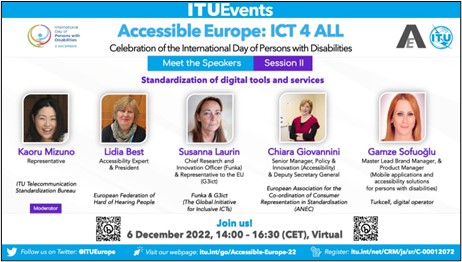
Chiara noted that, as long ago as 2012, ANEC had started working on the identification of the functional needs of persons with learning disabilities (including dyslexia, dementia and other cognitive disabilities) when using mobile ICT devices, leading to ETSI TR 103 349. We also set in train the preparation of a set of recommendations for the design and development of devices and applications (e.g. mobile phones, smartphones, touchpads, tablet computers), so that people with learning and cognitive disabilities could exploit new services, leading to ETSI Guide 203 350. Both standards were published in 2016.
ANEC supports standards on cognitive accessibility as they deal with the important and not sufficiently considered subject of cognitive disabilities, such as dementia and dyslexia. We also contributed to work of ISO/TC 173/WG10 “Assistive Products for Cognitive Disabilities” on ISO 21801 General Guidelines on Cognitive Accessibility and ISO 21801-1 Assistive products – guidelines on cognitive accessibility – Daily time.
Ukraine – Standards for the built environment
On 19 January, ANEC and the European Disability Forum (EDF), together with the Ukrainian National Assembly of People with Disabilities, hosted the webinar, ‘Accessibility Standards for the Built Environment’. The webinar was interpreted into Ukrainian.
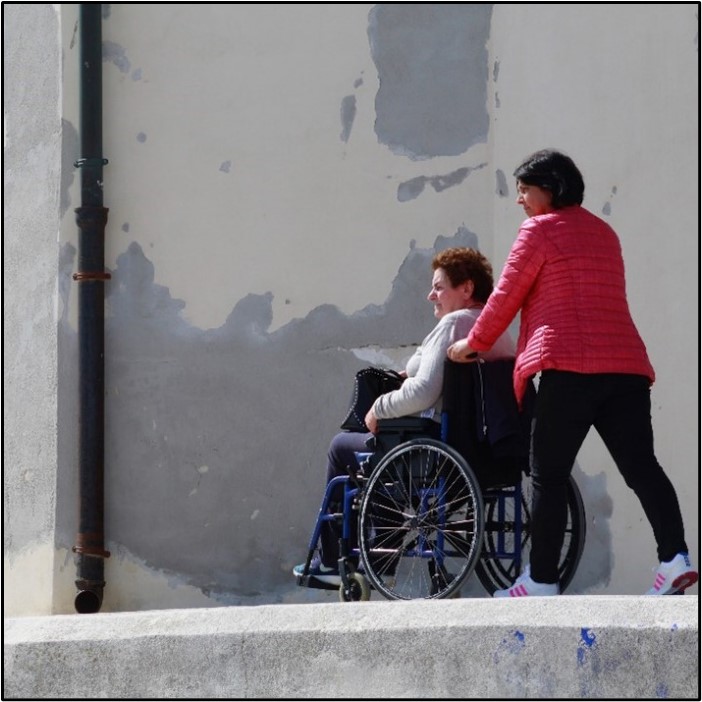
In a first part, Monika Klenovec, Project Team Leader for EN 17210 ‘Accessibility and usability of the built environment - Functional requirements’ and a member of CEN-CENELEC JTC 11, presented EN 17210 and its Technical Reports. In a second part, Isabella Steffan, a member of the CEN technical committees responsible for EN 17210 and EN 81-70 ‘Accessibility to lifts for persons including persons with disability’, spoke on the accessibility of lifts.
For more information (in Ukrainian), see https://bit.ly/3QW9NpV.
Domestic Appliances
Self-service bread slicers
In January, ANEC sent a Favourable Opinion in answer to the Enquiry on prEN 13954-2 ‘Food processing machinery - Bread slicers - Part 2: Safety and hygiene requirements for self-service bread slicers’.

Although these are not ‘domestic’ appliances, self-service bread slicers are more and more used by consumers, e.g. in supermarkets. As the machines stand in public spaces accessible to children, it is important these slicers take into account their use by vulnerable consumers.
Presuming the standard is adopted, we will consider submitting proposals to CENELEC/TC 61 on similar (commercial) appliances e.g. juice-makers, coffee machines which are used by the public in supermarkets and other places.
Domestic Appliances/Sustainability
Hidden effects of cooking with gas
On 9 January, CLASP and EPHA (the European Public Health Alliance) launched a report on the health impacts of cooking with gas (https://bit.ly/3GRI1Yr).
The report, "Exposing the Hidden Health Impacts of Cooking with Gas," shows that cooking with gas appliances may expose over 100 million people in Europe to raised levels of indoor air pollution. CLASP & EPHA found that all gas cooking appliances release pollutants that are harmful to human health and the environment, such as carbon monoxide (CO). Furthermore, over 700.000 children in the EU are found to have suffered symptoms of asthma in the past year because of to cooking with gas.

Before the publication of the report, we were asked to review the text from the consumer perspective. ANEC Senior Programme Manager, Tania Vandenberghe, was also pleased to participate in a panel at the CLASP/EPHA webinar on the same day, exploring the findings of the report and discussing solutions.
Tania called for indoor air quality to be addressed by EU legislation in order to avoid both fatal and non-fatal accidents through introducing limit values for exhaust gas parameters. These parameters (e.g. temperature, CO, NOx and CO2 concentrations) affect not only the performance of the appliance, but also the quality of the air, and thus pose a risk to health when released indoors. The Gas Appliances Regulation (EU) 2016/426 fails to set limit values for combustion gas parameters, in particular when combustion products are directly emitted in living areas, e.g. by gas cookers. As a result, European Standards for gas cookers permit very high concentrations of CO to be emitted in the room where the appliance is installed (more than 20 times greater than WHO recommendations) and pose extreme risk to health. CO poisoning is the cause of numerous deaths each year. We believe the establishment of limit values should not be left to standardisation. Highly political decisions that have a direct or key impact on the protection or welfare of consumers must be taken by the EC, and not delegated to the standardisation bodies. We call for the introduction of CO limit values similar to the World Health Organisation (WHO) guidance.
ANEC also raised the importance of enforcement. Even the most stringent legislation and standards are of little value if they are not applied or enforced. Following the adoption of Regulation (EU) 2019/1020, which aims to improve market surveillance by strengthening controls by national authorities to ensure that products entering the single market (including domestic cooking appliances), are safe and comply with the rules, we call on:
- Member States to make available the needed resources and deepen their coordination of market surveillance activities
- the EC to organise and finance joint market surveillance actions on the performance and safety of domestic cooking appliances.
We took the opportunity to reflect our points in our contribution to the EC’s Eco-design review of domestic cooking appliances.
Sustainability
ANEC intervenes on new packaging rules
As announced in our earlier newsletter, the EC published its proposal for the Revision of the Packaging and Packaging Waste Directive in its Circular Economy Package of 30 November (https://bit.ly/3FJOsfv).
ANEC Sustainability & Services Programme Manager, Michela Vuerich, presented our views on the proposed new rules at an Economic & Social Committee (EESC) event on the European Packaging Sector on 9 December. It was held under the auspices of the Czech EU Presidency (https://bit.ly/3YeHEO7).
The event was organised during a public hearing of the EESC CCMI (Consultative Commission on Industrial Change ) with the goal to reinforce the message in the EESC opinion "Making packaging a safe, affordable and eco-friendly industry" (https://bit.ly/3j2vb03) and gather the views of policymakers, civil society representatives and industry on what are challenges and opportunities the new rules present.
Michela summarised the ANEC experience with the current rules and standards on packaging, and our expectations of what should be improved for the rules to benefit both consumers and the environment. We welcome the increased attention to prevention and reuse, but ask for more ambitious targets to be set by the co-regulators in the next steps. In addition, we urge that the chemical safety of packaging products is improved, especially when the packaging is in contact with food or drinks.
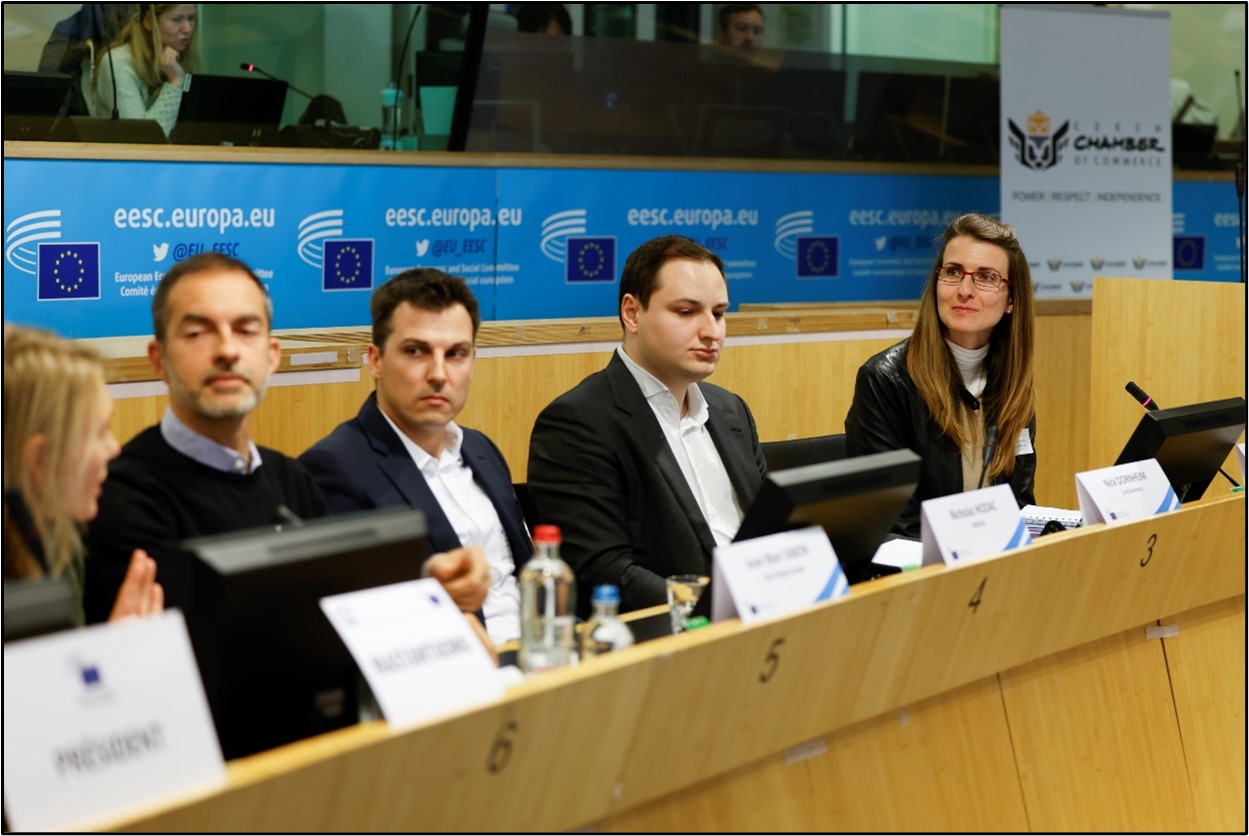
© European Union 2022, Source: EESC
AISE Cleaning and Hygiene Forum
ANEC Director-General, Stephen Russell, was a panellist at the AISE Cleaning and Hygiene Forum held virtually on 7 December 2022.
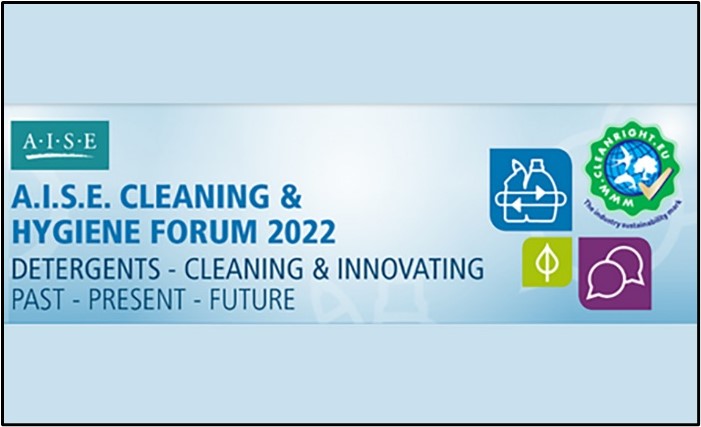
Asked what he saw as the most important priority for action to ensure Europe has the best possible environment to foster and support sustainable products and choices, he said any policy to address greenwashing should not only look at use of a methodology to substantiate environmental claims, but focus on the environmental concerns and environmental impacts that need to be reduced, including what is important for consumers.
Turning to Life Cycle Analysis, he admitted LCA can capture some impacts - such as water or energy consumption, and the use of secondary raw materials – but it does not address other aspects such as chemical safety and biodiversity protection. For this, he argued there need to be complementary tools.
Concluding, he said information needs to reliable, factual, clear and simple – available online and offline - if it is to create knowledge among consumers about environmental impacts – good and bad. He said is was also key to address the consequences for the environment and for the planet if real change is to be achieved.
A recording of the complete event can be found at https://bit.ly/3DOAR5i.
ISO/COPOLCO workshop on sustainability
ANEC was delighted to speak at the ISO/COPOLCO workshop on sustainability held online on 15 December.

During a panel discussion, Michela Vuerich shared our experience and views on consumer challenges as regards sustainable claims, and the benefits international standards can bring in this context and more generally for sustainable consumption. Before its plenary meeting in May, ISO/COPOLCO will ask its members to collect information on national sustainability standards, research and initiatives in order to engage consumer and civil society groups.
General Assembly of SmartLivingEPC
The SmartLivingEPC project held its first General Assembly on 16 January, hosted both online and in Limassol (Cyprus), by the Frederick University. ANEC is a member of the consortium which aims to deliver a new, enriched and smart Energy Performance Certificate (EPC).
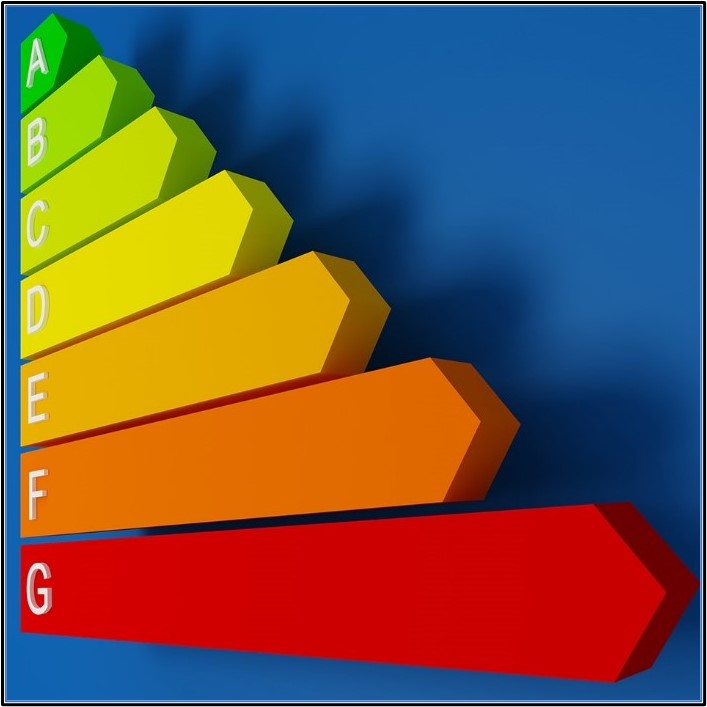
Still in its infancy, the project has registered some initial achievements, with the creation of social media channels and a dedicated website (https://www.smartlivingepc.eu/en). The consortium is also finalising its first deliverables, which will enable a better understanding of methodologies used at European level in issuing EPCs, and identify the gaps and challenges among current practices. An early analysis of stakeholder requirements and market needs will also lay the foundations needed to develop the calculation methodology the project seeks to develop.
The meeting was also an opportunity for ANEC to present the progress made at the December NDA Workshop, in collaboration with other European projects working on the topic of energy performance of buildings.
Chemicals
Final conference of LIFE AskREACH
25 January saw the final conference of the LIFE AskREACH project (www.askreach.eu). Our Swedish and Danish members have been among the project partners. The project has aimed at raising awareness of consumers and suppliers to substances of very high concern (SVHCs).
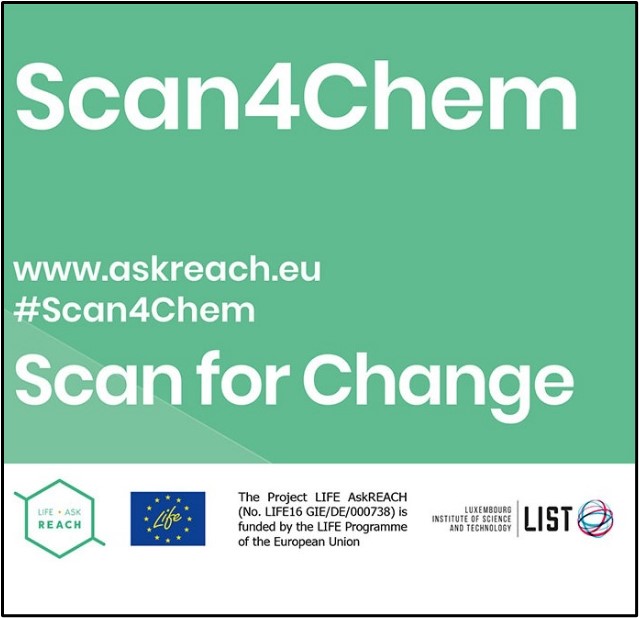
The initiative has made it easier for consumers to communicate with businesses about SVHCs by creating the Scan4Chem smartphone app. This is applicable throughout all of Europe and allows customers to submit requests in accordance with REACH Article 33.
MEP Christel Schaldemose joined the panellists. She noted how it must never be an individual responsibility to protect consumers from hazardous chemicals. She praised the achievements of the project, and work done by national consumer organisations, in anticipation of better and stronger regulation.
ANEC’s Sustainability Programme Manager, Michela Vuerich, congratulated colleagues on the work done to raise awareness and encourage substitution of SVHCs.
Ecodesign
SReq on ecodesign of washing machines and washer driers
ANEC has commented to the EC on a draft Standardisation Request (SReq) for the ecodesign requirements for washing machines and washer driers. This product group had already been addressed by a previous SReq in 2020, and the ESOs had developed or adapted the required standards. Nevertheless, in the meantime, amendments to the REACH regulation (Regulation 1907/2006/EC) banned a detergent used in washing machines and washer driers. Since the detergent was also cited by tests in the related harmonised standards, these standards need to be revised to align with REACH when the amendment enters into force in May 2023.
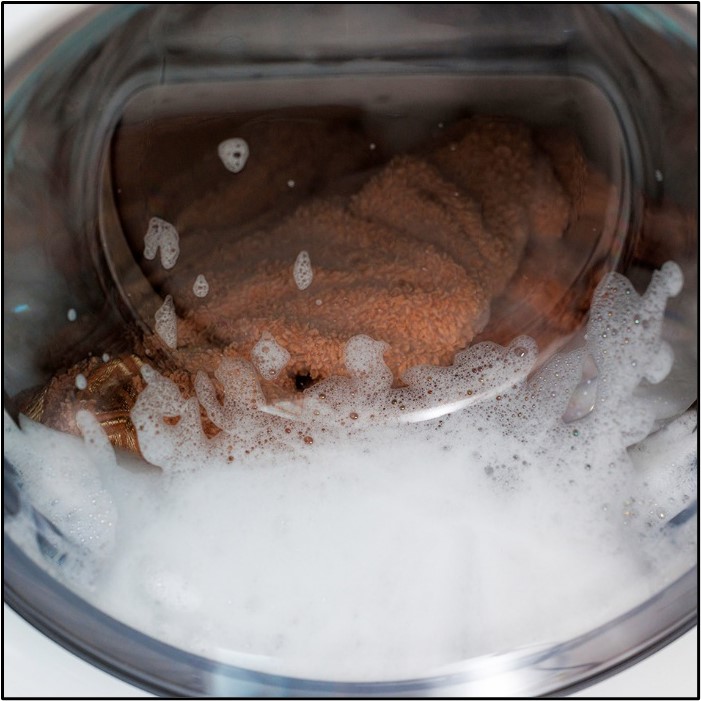
An absence of harmonised standards would mean that no verification of the energy claims of washing machines or washer dryers could be undertaken by the authorities. This would cause suspension of reliable energy labelling and Ecodesign measures for these classes of products from May 2023 until the eventual publication of new harmonised standards. ANEC is therefore participating in the SReq ad hoc group set up to address these issues.
Digital Society
ANEC webinar on standards and the AI Act
ANEC hosted a webinar, ‘Standards and the AI Act: What impact can AI standards have and how to influence them?’ on 15 December. The webinar took place immediately after the EC published its final draft SReq on trustworthy AI. The webinar was possible thanks to funding provided by the European AI Fund (http://bit.ly/3XeMBVh).

The aims of the webinar were to understand the impact of AI on our lives; to understand how standardisation works in the EU policy process; to understand how standards are used in the AI Act and the risks and opportunities, including discovering the best channels to influence standards-making in the EU.
After hearing from our expert on AI, Peter Eisenegger, on the impact of AI in our lives, Laurens Hernalsteen, CEN-CENELEC Project Manager responsible for AI, spoke on the role of standards in the AI Act and gave an update on the draft SReq. Chiara Giovannini, ANEC Deputy Director-General, concluded with advice on how to influence future AI standards. A discussion followed.
Services
Short-term rentals
ANEC welcomes the EC proposal for a Regulation to enhance the transparency of short-term accommodation rentals.
As we explain in our new position paper on the proposal (https://bit.ly/3JdjjTD), we consider it imperative to find new ways of defining the relationships between consumers, prosumers, providers and platforms to define whether consumer law (B2C) or contract law (C2C) applies to the transactions.
Moreover, matters relating to the sharing economy need to be adequately addressed by both regulations and standards.

In our paper, we also refer to existing standards and guidelines that could be helpful in the development of the Regulation, such as ISO 10002: 2004 ‘Customer Satisfaction: Complaints Handling’ and ISO 10008:2013 ‘Quality management - Customer satisfaction - Guidelines for business-to consumer electronic commerce’; and ISO 20488:2018 ‘Online consumer reviews -- Principles and requirements for their collection, moderation and publication’, as well as ISO 42500:2021 ‘Sharing economy — General principles’.
Our paper was sent in answer to the EC consultation on the proposal (https://bit.ly/3kJ6KFJ).
EC study on postal services
In mid-January, the EC published the results of the study, Main Developments in the Postal Sector (2017-2021) (https://bit.ly/3kJzZYV), performed by Copenhagen Economics. The final steps for the study were presented to a stakeholder workshop (https://bit.ly/3iZSacs), which we joined on 29 September.

The regulatory frameworks of the EU Member States and EFTA countries, as well as the most significant changes to the postal market, are evaluated for the seventh time in this study. According to the report, the decline in letter mail volumes, caused by the substitution of electronic mail for paper mail, is requiring price rises and cost reductions for various European universal service providers. Meanwhile, the COVID-19 pandemic and growth in e-commerce have increased competitiveness in the courier, express, and parcel sectors.
The study also examines how the postal industry's employment structure has changed, how the sector's competitive environment has evolved, and how much it costs to deliver packages across borders.
More details can be found in the main report (https://bit.ly/3ZWPvAG) and the country fiches (https://bit.ly/3kEScGZ)
SReq on postal services
CEN has accepted a SReq on postal services which ANEC supported.

We recognise the achievements of CEN/TC 331 in postal services for consumers to support the Postal Services Directive, but the use of the standards needs to be further enhanced. The latest version of the SReq reflects our position on the quality of postal services, in the context of the digital and single markets, and our proposal to give examples of best practices to avoid negative environmental impacts.
Separately, we are still looking for a candidate willing to be the ANEC expert in CEN/TC 331 (https://bit.ly/3JpUq7g).
Traffic & Mobility
CCAM Strategic Research and Innovation Agenda
As a member of the Connected, Cooperative and Automated Mobility (CCAM) Association, ANEC was invited to the kick-off meeting launching a revision of the CCAM strategic research and innovation agenda (SRIA). The meeting took place on 18 January in Brussels.

CCAM Cluster 6 addresses societal aspects and user needs, and is of particular importance to ANEC as it investigates the needs of future European CCAM users, citizens, and society at large. Actions in this cluster aim at developing methods and measures to capture these needs, expectations and concerns towards connected and automated mobility solutions. It also seeks to assess the impacts and benefits that CCAM services can bring in terms of safety, accessibility and environmental issues.
ANEC has been supporting the cluster 6 development for several years now, as we advocate for efficient and affordable CCAM solutions that can serve all groups of consumers. For the 2023 revision of the SRIA, we have emphasised once again that no one should be left behind. This means the profiles of all consumers who wish to use CCAM services should be included early in the design and creation process, but it also means that those want to opt-out should be allowed to do so, without disadvantage.
The CCAM Association will hold further rounds of consultation until June to finalise the revision of the agenda.
News from ANEC member countries
Denmark
More unwanted chemicals discovered
The Danish Consumer Council’s THINK Chemicals carried out tests recently and discovered 13/41 dishwasher products tested contained benzotriazole, a suspected endocrine disruptor. Furthermore, 18/41 products tested contained perfumes able to cause allergies among other health problems. Further details can be found on their website (https://bit.ly/3DEq8ub).
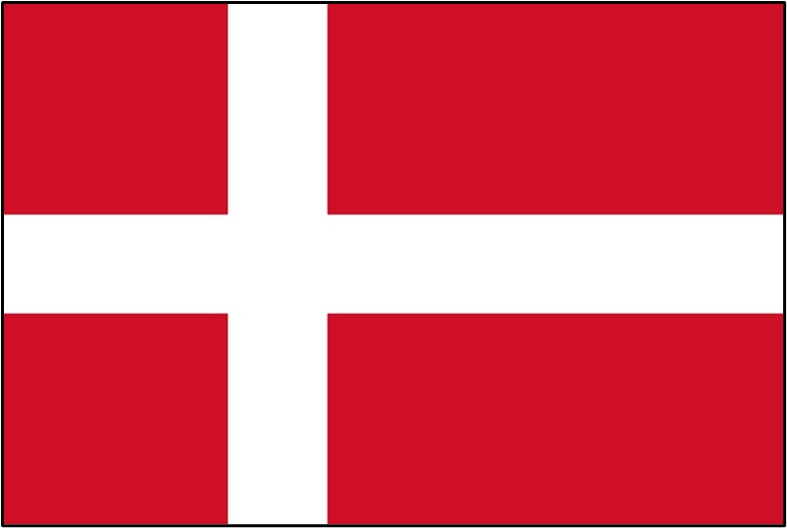
More than a third of nail polishes tested also contained suspected endocrine disruptors. Two nail polishes tested contained the allergenic preservative colophonium, a solid form of resin that can cause allergies when in contact with skin. More details: https://bit.ly/3H9U1Dw.
| List of meetings 2023 |
For comments or if you wish to write an article for the ANEC Newsletter, please contact: Helena CLARK (This email address is being protected from spambots. You need JavaScript enabled to view it.).


